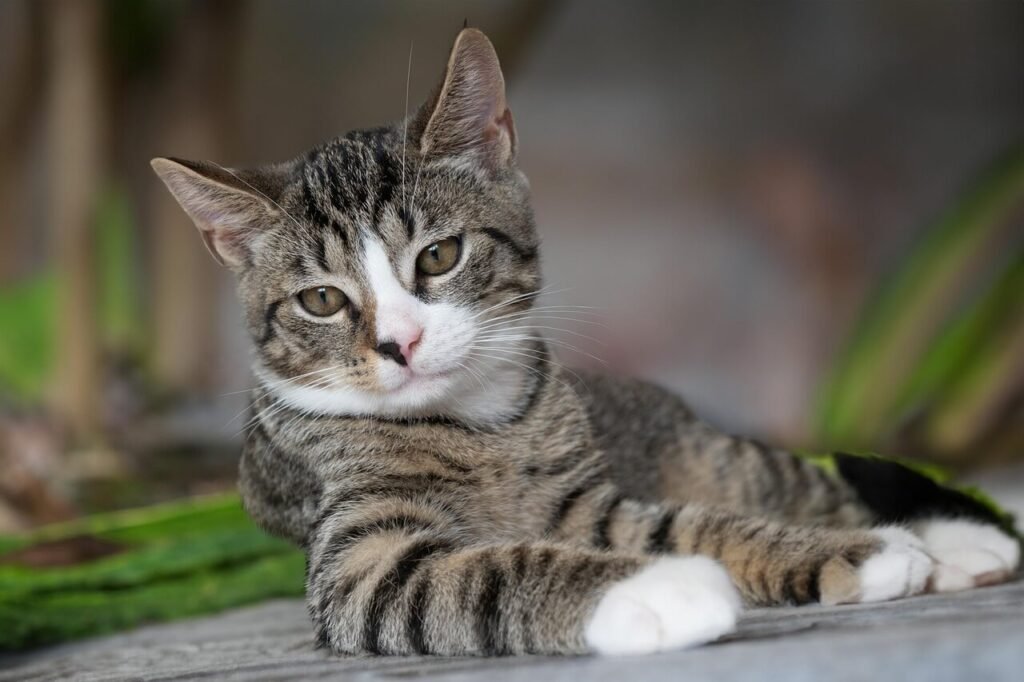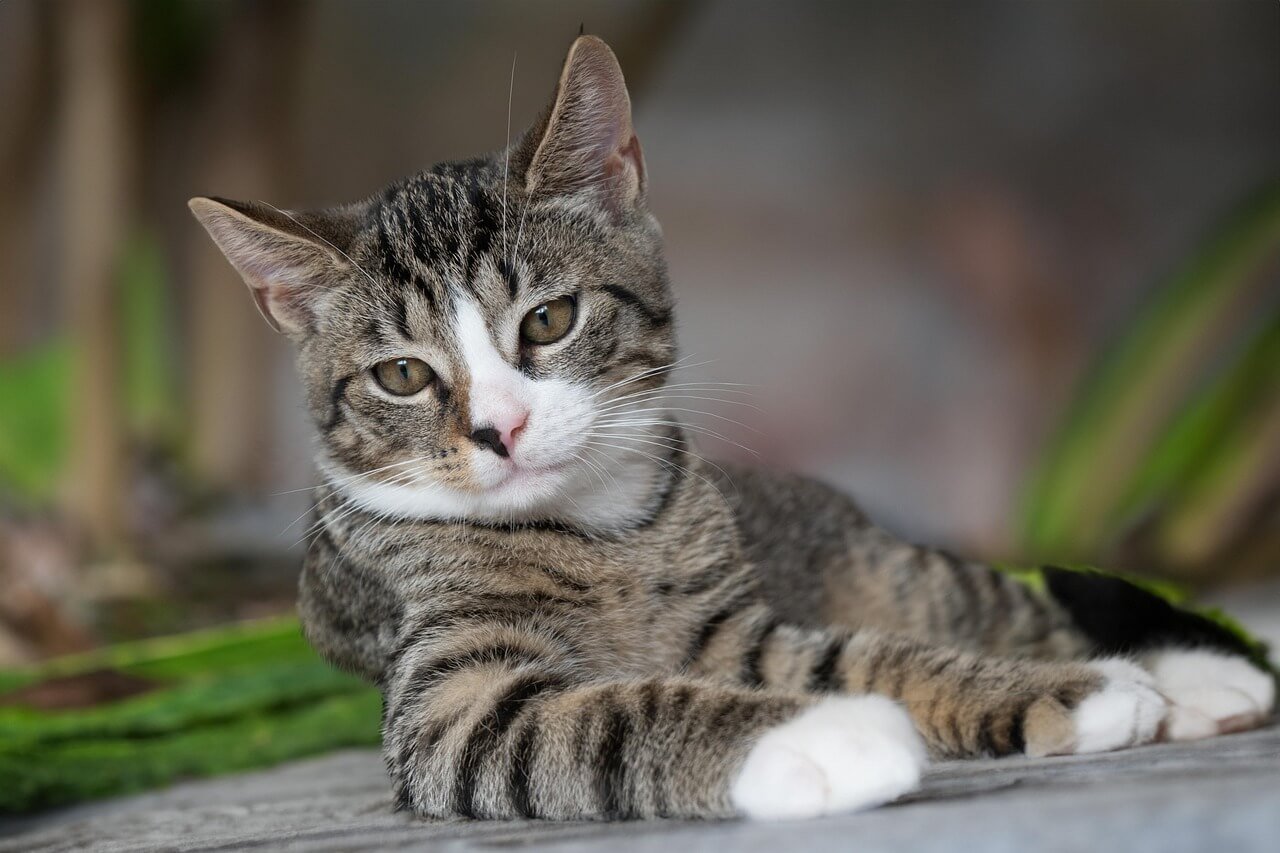Why Does My Cat Smell Bad? Unraveling the Mystery Behind Feline Odors
Cats are often seen as the epitome of cleanliness, spending hours grooming themselves every day. Yet, despite their meticulous habits, there may be times when your feline companion emits an unpleasant odor. If you’ve ever wondered why your cat smells bad, you’re not alone. Many pet owners face this issue, and while it can be concerning, most causes are treatable or manageable. In this blog post, we’ll explore the potential reasons behind your cat’s unusual scent, how to identify them, and what steps you can take to keep your furry friend smelling fresh and healthy.
Common Causes of Unpleasant Cat Odors
While cats are naturally clean animals, several factors can contribute to an unwanted smell. Below are some of the most common culprits:
Poor Hygiene : Cats that stop grooming themselves due to illness, obesity, or old age may develop a buildup of dirt and oils on their fur.
Dental Issues : Dental diseases like gingivitis or tooth decay can lead to foul breath that affects your cat’s overall scent.
Anal Gland Problems : When anal glands become impacted or infected, they can release a strong, fishy odor.
Skin Infections : Bacterial or fungal infections on the skin can cause unpleasant smells, especially if accompanied by excessive scratching or hair loss.
Litter Box Habits : Sometimes, the smell isn’t coming from your cat but from lingering odors stuck in their fur after using the litter box.
Understanding these potential causes is the first step toward addressing any odor-related concerns. By pinpointing the source, you can take targeted action to help your cat feel—and smell—better.
Health Conditions That Could Cause Bad Smells
Certain medical conditions can also result in your cat emitting an unpleasant odor. Here’s what you need to know:
Kidney Disease : Chronic kidney issues can lead to a distinct ammonia-like smell on your cat’s breath.
Diabetes : Untreated diabetes might produce a sweet, fruity scent on your cat’s breath, signaling high blood sugar levels.
Ear Infections : Infected ears often emit a yeasty or musty smell and may appear red or swollen.
Urinary Tract Infections (UTIs) : UTIs can sometimes leave a lingering urine-like odor on your cat’s coat.
Digestive Disorders : Conditions like inflammatory bowel disease (IBD) can cause excessive gas or stool odors that cling to your cat’s fur.
If you suspect a health condition is behind your cat’s smell, consult your veterinarian promptly. Early diagnosis and treatment can make all the difference in restoring your cat’s comfort and freshness.
Check this guide 👉 Why Does My Cat Lick My Nose? Best 7 Behavior Tips!
Check this guide 👉 Why Is My Cat Panting After Playing? Best 7 Expert Care Tips
Check this guide 👉 Why Is My Cat Dragging Their Butt? Best 7 Expert Tips!

Signs Your Cat May Need Help | Steps You Can Take |
|---|---|
Persistent bad breath | Schedule a vet checkup for dental care |
Strong odor from ears | Clean ears gently and seek veterinary advice |
Unusual licking or scratching | Inspect for skin infections or parasites |
Avoidance of grooming | Check for mobility issues or underlying illnesses |
Frequent accidents outside the litter box | Evaluate litter box cleanliness and placement |
Environmental Factors Contributing to Odor
Sometimes, external factors play a role in making your cat smell less than pleasant. Consider the following possibilities:
Dirty Living Spaces : A messy home environment can transfer odors onto your cat’s fur.
Infrequent Litter Box Cleaning : A dirty litter box can leave traces of waste on your cat’s paws or tail.
Contact with Strong Substances : Exposure to things like cigarette smoke, cleaning products, or even spoiled food can affect your cat’s scent.
Outdoor Adventures : Cats allowed outdoors may pick up smells from plants, mud, or other animals.
Shared Bedding : If your cat shares bedding with another pet, odors can transfer easily between them.
Addressing environmental factors involves maintaining cleanliness and ensuring your cat’s surroundings remain hygienic. Simple changes here can yield significant improvements.
Tips for Keeping Your Cat Fresh and Healthy
Prevention is always better than cure when it comes to managing your cat’s odor. Try these practical tips to keep your feline smelling great:
Regular Brushing : Brushing your cat’s fur removes loose hair, dirt, and oil buildup.
Routine Vet Visits : Regular checkups help catch health issues early before they cause noticeable odors.
Proper Nutrition : Feeding your cat high-quality food supports digestive health and reduces body odors.
Clean Litter Boxes : Scoop the litter box daily and replace the litter weekly to prevent lingering smells.
Safe Bathing : While cats groom themselves, occasional baths (using pet-safe shampoo) can remove stubborn odors.
By incorporating these practices into your routine, you’ll create a healthier, fresher environment for both you and your cat.
Grooming Habits and Their Impact
Cats are known for their self-grooming habits, but sometimes their routines may not be enough to keep odors at bay. Here are some grooming-related factors that could contribute to unpleasant smells:
Overgrooming : Excessive licking can irritate the skin and lead to infections, which may produce a bad odor.
Undergrooming : Cats with arthritis or obesity might struggle to reach certain areas, causing dirt and oil buildup.
Hairballs : Frequent hairball production can leave lingering smells if not cleaned up promptly.
Matting : Tangled fur can trap moisture and bacteria, creating an unpleasant scent over time.
External Parasites : Fleas or ticks can cause itching and irritation, leading to secondary infections that smell bad.
By monitoring your cat’s grooming habits and addressing any irregularities, you can prevent odor issues before they escalate. A little extra care can go a long way in keeping your cat fresh and comfortable.
Diet and Digestive Health
What your cat eats plays a crucial role in how they smell. Poor nutrition or digestive problems can manifest as unpleasant odors. Consider these dietary factors:
Low-Quality Food : Cheap cat food often contains fillers that can upset digestion and lead to foul-smelling gas.
Food Allergies : Some cats develop allergies to specific ingredients, resulting in skin irritation or smelly stools.
Wet vs. Dry Food : Wet food can sometimes leave residue on your cat’s whiskers or face, contributing to odors.
Hydration Levels : Dehydration can cause concentrated urine, which may cling to your cat’s fur after using the litter box.
Probiotics : Adding probiotics to your cat’s diet can improve gut health and reduce digestive odors.
A balanced diet tailored to your cat’s needs is essential for maintaining both their health and their natural scent. Always consult your vet before making significant changes to their meals.
Behavioral Factors That Influence Odor
Sometimes, behavioral quirks can be the source of your cat’s unpleasant smell. Understanding these behaviors can help you address the issue effectively:
Marking Territory : Unspayed or unneutered cats may spray urine to mark their territory, leaving behind a strong odor.
Stress or Anxiety : Stressed cats may avoid grooming or use inappropriate places as litter boxes, leading to smells.
Curiosity : Cats exploring garbage bins or dirty laundry can pick up unwanted scents from their surroundings.
Playful Mishaps : Rolling in dirt, mud, or other substances during playtime can leave your cat smelling less than fresh.
Hiding Illness : Cats instinctively hide pain or discomfort, so unusual odors might be their only way of signaling a problem.
Observing your cat’s behavior closely can provide valuable clues about the source of the odor. Addressing behavioral issues early ensures a happier, healthier, and fresher-smelling feline companion.
Frequently Asked Questions About Cat Odors
Why does my indoor cat smell bad?
Indoor cats can develop odors due to poor hygiene, health issues, or environmental factors like dirty litter boxes.
How often should I bathe my cat?
Most cats don’t need regular baths, but occasional bathing (every few months) can help if they have persistent odors.
Is bad breath normal for cats?
No, bad breath is usually a sign of dental problems or systemic health issues and should be checked by a vet.
Can diet affect my cat’s smell?
Yes, poor-quality diets or certain ingredients can impact digestion and contribute to unpleasant odors.
Should I worry if my cat suddenly starts smelling bad?
Sudden changes in odor could indicate a health problem, so it’s best to consult your veterinarian quickly.
Final Thoughts: Restoring Your Cat’s Natural Freshness
Dealing with a smelly cat can be frustrating, but understanding the root cause is key to resolving the issue. Whether it’s improving hygiene, addressing health concerns, or enhancing your home environment, there are plenty of ways to ensure your feline stays fresh and happy. Remember, regular vet visits and attentive care go a long way in maintaining your cat’s well-being. With patience and effort, you’ll soon enjoy cuddling with your odor-free companion once again!
Dog Tapeworm Life Cycle: Best 7 Expert Tips! – Learn how tapeworms infect dogs, spot symptoms, and break the cycle with expert prevention strategies.
Anxious Cat Body Language: Best 7 Expert Tips! – Learn to spot signs of stress, understand triggers, and help your cat feel safe and relaxed.
Anxious Dog Body Language: Best 7 Expert Tips! – Learn to spot signs of anxiety, respond effectively, and help your dog feel safe and secure.
Is Breeding Dogs Bad? Best 7 Expert Tips! – Explore the ethics, benefits, and risks of dog breeding to make informed decisions for a better future.





